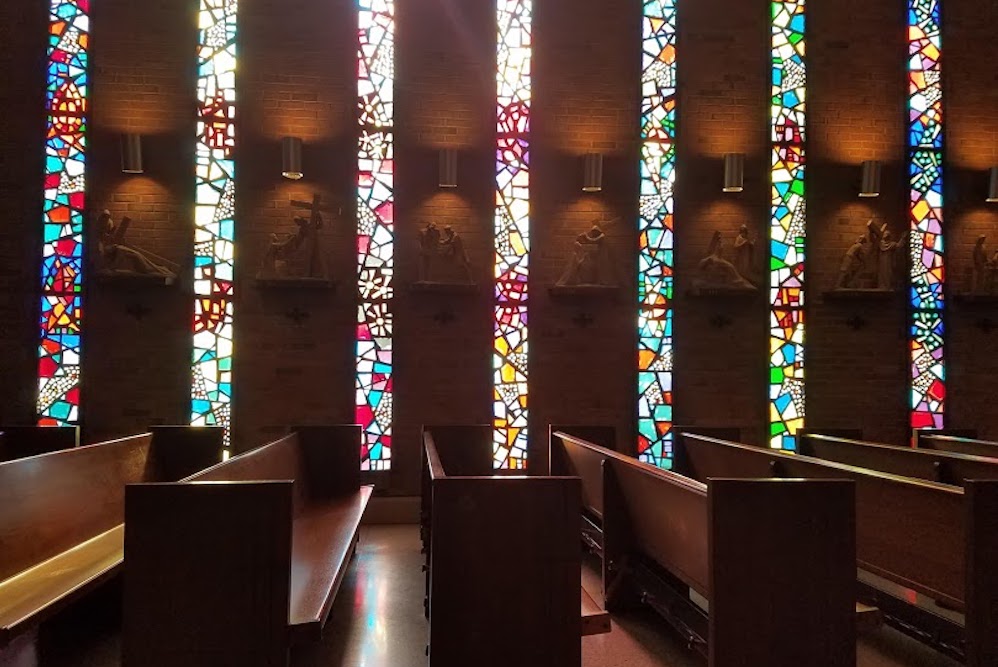
The empty Cenacle Retreat & Conference Center chapel (Mark Piper)
The welcome is my favorite part, extrovert that I am.
Everyone gets, "the Cenacle welcome." When a group arrives, we provide a 7-minute welcome ensuring guests understand the layout of the retreat center, logistics and emergency information. For groups not from Chicago, I also provide an orientation to the Lincoln Park neighborhood, chock-full of my finest dad jokes: turn right and in five blocks you'll get to our outdoor pool, which some people refer to as Lake Michigan. The last welcome I gave was on March 7.
I have been the director of the Cenacle Retreat & Conference Center since June 10, 2019. The last few months have made for a very prodigious first year. The last few months have been difficult on all of us who operate retreat centers. We are used to the cycle of welcoming and sending forth, of hellos and goodbyes, but this waiting so long after a goodbye to say hello once more is new to us.
In late February, we took note and precautions due to the pandemic. But by March 13, before the state of Illinois issued its shelter-in-place mandate, we chose to close to the public until we could safely reopen. Since the Congregation of Our Lady of the Retreat in the Cenacle (Cenacle Sisters) arrived on this site on March 17, 1920, we've never had a situation like this. This was not our preferred 100th anniversary celebration.
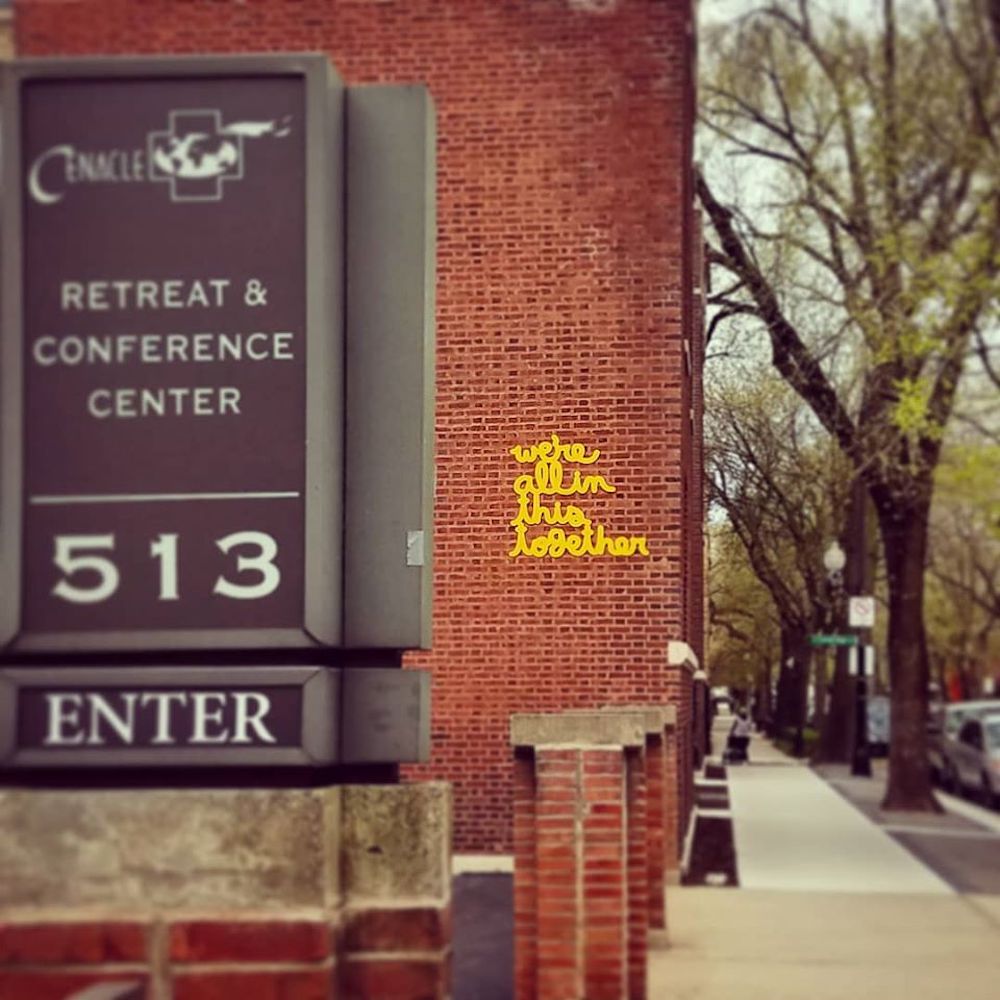
A sign reading "We are all in this together" hangs outside the Cenacle Retreat & Conference Center in Chicago (Mark Piper)
In keeping with our mission, each year the Cenacle would welcome over 7,500 persons. They came from religious communities, non-profit boards of directors, social justice committees and parish groups. We, like thousands of other retreat centers across the world, provide the space for people of all walks of life to go out and do justice, love mercy and transform our world. Whoever they are, they are welcome to grace our simple, holy halls.
Every colleague of mine has been burdened and vexed. We're figuring out how to pivot, how to live our mission as places of welcome, acceptance and healing, under a new and existential duress: necessary prolonged closures.
Jesuit Fr. Chris Manahan, executive director of the Jesuit Retreat House in Oshkosh, Wisconsin, temporarily closed his doors on March 15. More than 450 people had their retreats canceled. The center has planned for a June 24 reopening.
"It will look different because we will be following the various public health precautions meant to keep those who come here safe from COVID-19," Manahan said. "The logistics of how we host groups, i.e., housekeeping, meals, religious services, will not be the same as those prior to March 2020." But, he concluded, "those [changes] will be minor, as retreatants most treasure the prayer, solitude, and natural beauty that surrounds them while they are here; none of those elements will change, thankfully."
"I think that retreat centers play an important role in helping people make meaning during these times," said Claire Anderson, executive director of the Siena Retreat Center in Racine, Wisconsin, which reopens on Aug. 1. "At Siena, we have created brief two-minute reflective videos on YouTube and on Facebook. We anticipate having more online programming. Although virtual programming will never take the place of an in-person, on-site retreat."
As another example, now confronting the crisis of racism along with a pandemic, the Br. David Darst Center is hosting a virtual retreat on anti-racism. When safe, their racial justice retreats will again be held in person.
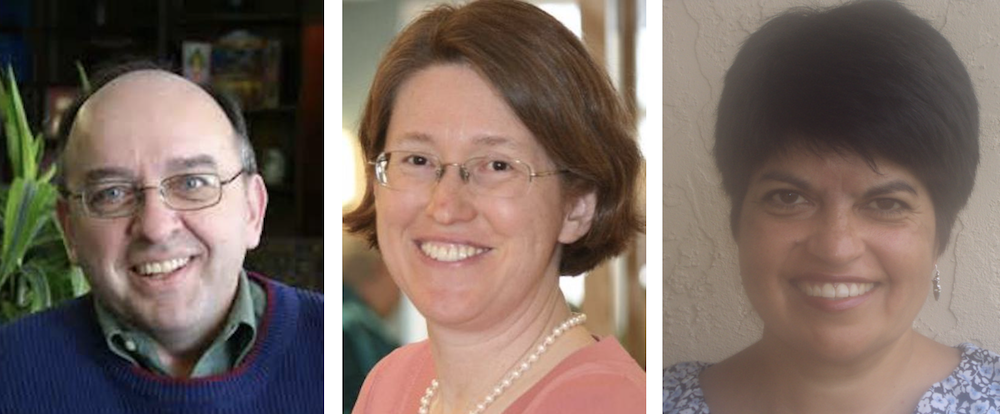
Jesuit Fr. Chris Manahan, Claire Anderson and Margarita Solis-Deal (Provided photos, Anderson's courtesy of Monika Sobrierajski)
Advertisement
Here in Illinois, with different mandates than Wisconsin, Nancy Golen, director of the Cabrini Retreat Center in Des Plaines shared that these mandates have, "caused Cabrini to be separated from our ministerial identity as a place of physical sacred space."
"Approximately 80% of the guests at Cabrini are youth. The closure came at a time when we would have been at full capacity with multiple Kairos Retreats," she said. "For decades we've welcomed and cared for young people. As we plan our reopening there are many considerations to restore that sense of sacred safety. Cabrini's sponsors have been open to offering the retreat space for other forms of service."
Civic or health care representatives have approached some centers about utilizing their space to house first responders, quarantined individuals or homeless persons. Some obliged. Other retreat centers have found that impractical due to vulnerable populations who live onsite. Nancy said that, "Due to the way our facility is designed, and the nature of COVID-19, no fit was found for the space to date."
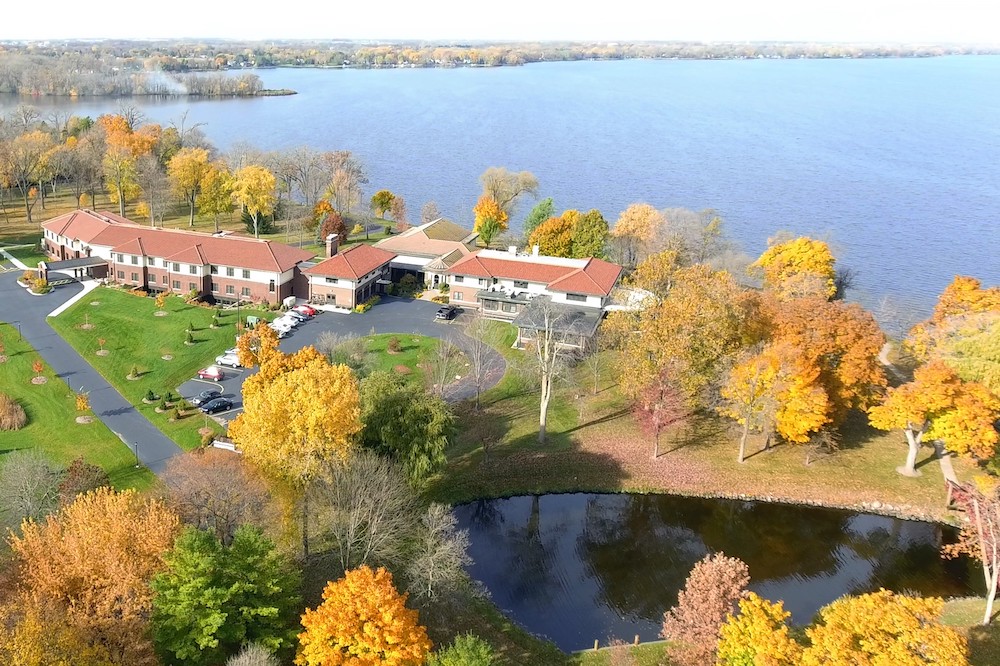
Aerial view of Jesuit Retreat House in Oshkosh, Wisconsin (Provided photo)
I am grateful to engage in video calls through the Retreat Center Collaboration. This 2-year-old entity, funded by the Fetzer Institute, has connected many of the hundreds of retreat and spirituality center directors across North America. I spoke with two core team members of the collaboration, Margarita Solis-Deal, director of the Dominican Center at Marywood in Michigan, and Jean Richardson, executive director of Kirkridge Retreat and Study Center in Pennsylvania.
The collaboration is for any retreat center regardless of religious affiliation. Comparing one retreat center to another is almost like comparing apples to oranges. Margarita sees this on the core team. Some centers can easily pivot at this time, can maintain their work of transformation, while others cannot because of their sponsorship, finances, location, staffing and building layout. For instance, La Salle Manor , which is just 50 miles west of the Cenacle, and happens to be where I met my wife 14 years ago on retreat, is in a rural setting and in a different region of the Restore Illinois Plan allowing it to open and host larger groups of peoples sooner.
Not all retreat centers were eligible for the Paycheck Protection Program. Many centers affiliated with the Retreat Center Collaboration did apply and did receive funds. It's clear that even after it is safe to reopen, after the Paycheck Protection Program runs out, many retreat centers will provide diminished or reduced ministries. It's also very likely some centers may simply be unable to recover from this, and temporary closures will become permanent closures.
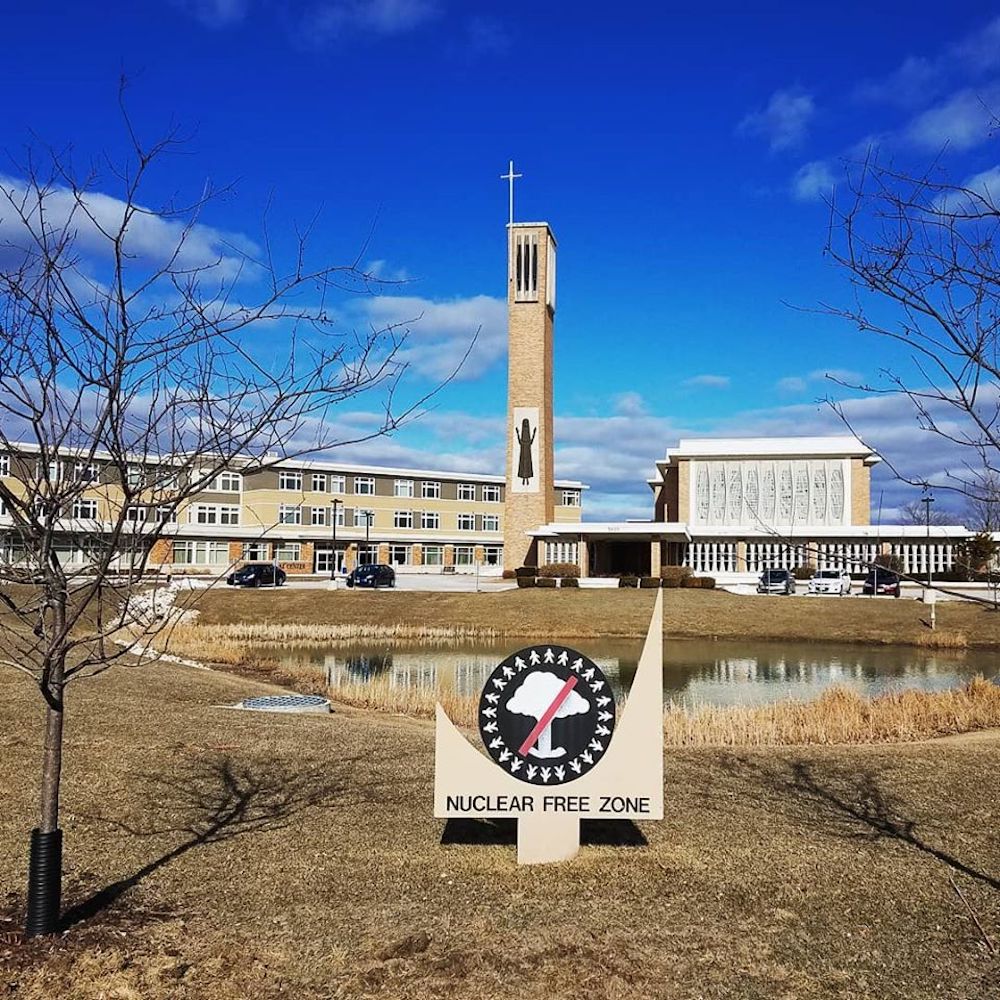
Siena Retreat Center in Racine, Wisconsin (Mark Piper)
Jean has referred to retreat centers as "national parks of the soul." Just like the contours of those beautiful parks, those who are a part of the collaboration value the role of intentionally designed places. The Retreat Center Collaboration intends for retreat centers to nurture "contemplation, compassion, community, learning and social healing." Jean notes that many centers are planning for grief and trauma programs when it's safe to reopen. In the interim, places like Kirkridge have reached more people — including people who otherwise could not access the center or its grounds — via Zoom in the last few months than they welcomed onsite all last year.
Jean articulated the point of retreat centers to "make the world more humane. … To come together in community, not to escape reality." Currently, community means technology. There is no escaping the reality of a pandemic and necessary social distancing that renders our beautiful sacred spaces fallow.
My Cenacle welcome ends with an explanation that Cenacle is Latin for "upper room," the place where the disciples would meet and pray — in joy and in sorrow — where the Spirit arrived and inspired. Therefore, the staff and sisters would pray for an inspired meeting or retreat.
We miss our guests. Despite bleak financial realities, we maintain a trust in a God of love and abundance. A trust that, when it is safe, we will say "welcome" once again. Until that day of our next holy hello, we're in anxious solidarity, praying this long goodbye.
[Mark Piper, a Packers fan in an unholy land, works in the nonprofit sector and resides in Chicago with his family. He is an alumnus of Amate House, an AmeriCorps-approved year of service organization sponsored by the Chicago Archdiocese.]
Editor's note: Sign up here and we can send you a note every time a Young Voices column is posted to NCRonline.org so you won't miss any.







